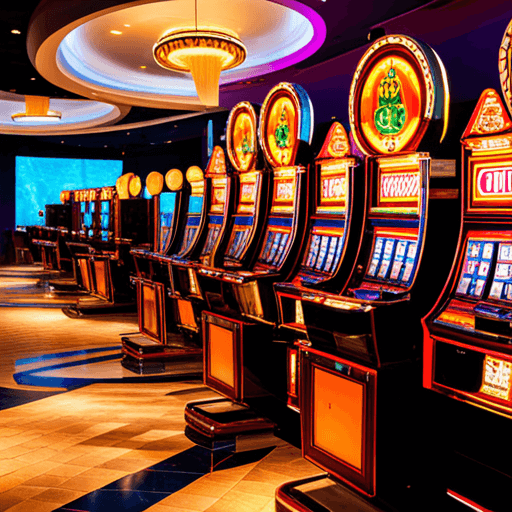
Casino games have enthralled gamblers for decades, pulling them into a realm of thrill, luck, and fortune. From the blinking lights of gambling machines to the intense nature of poker games, these experiences offer a special mixture of fun and exposure. However, beneath the surface of this sparkle and style lies a complex interplay of math that shapes every conclusion and action made within the gaming hall.
Comprehending this link between gambling games and mathematics not only enhances the gambling experience but also can help gamblers make knowledgeable selections. Whether you are a casual gambler or a passionate fan, recognizing the mathematical principles at play can offer insightful understandings into chances, odds, and approaches, ultimately shaping how one approaches these chance games.
Mathematical Probability in Betting
In the world of casino games, statistical probability plays a crucial role in determining outcomes and informing gambler decisions. Every game has a unique set of rules and a particular probability framework that affects its mechanics. For example, in games like roulette, players must understand the chances of landing a specific number or color. The likelihood of specific occurrences occurring can be assessed, and this knowledge can substantially influence betting tactics.
Players also need to be cognizant of the casino advantage, which is the mathematical benefit that gambling establishments hold over players in the long term. This advantage varies across various games. In 21, skilled players can use tactics to reduce the casino edge to as low as 1 %, while in activities like slot machines, the house edge can be much higher. Understanding the house advantage allows players to make wise decisions about which activities to participate in and the amount to bet.
Additionally, probability is fundamental in the principle of danger versus gain in betting. Each bet carries a particular risk level, and gamblers must evaluate the potential return against that danger. Games like poker require players to not only assess the odds of their personal hand winning but also to assess the likelihoods of their rivals’ hands. By utilizing statistical concepts to their strategy, players can boost their chances of success and engage more strategically in the exciting world of gambling activities.
Expected Value in Casino Games
When discussing gambling games, one of the fundamental ideas rooted in mathematics is the anticipated worth. This numerical metric assists gamblers understand the potential outcomes of their wagers over time. In simple terms, anticipated value (EV) calculates the mean amount a player can anticipate to gain or lose per bet if they were to play the activity many times. Each game has its unique EV, affected by the odds and the casino advantage, which indicates the advantage that the gambling establishment holds.
For example, consider a game like roulette. The expected value can be calculated based on the specific wager made. If a gambler bets on a individual number, the return is 35 to 1, but the true chances of success that wager are 1 in 37 (in Euro roulette). This results in a detrimental expected value, showing that, on average, players will incur a loss money over a period when playing this kind of bet. Grasping this concept allows gamblers to make better educated decisions about which games and wagers may be less advantageous.
Moreover, the investigation of expected worth can lead to better money management. Gamblers who understand the math behind their games are often able to set practical goals. By recognizing their potential deficits and profits, they can modify their playing strategies appropriately, which may enhance their total gambling experience. https://f168.group/ As a result, expected value serves as a crucial tool for both beginner and experienced gamblers to steer through the often unpredictable character of casino games.
Strategies and Chances: The Arithmetic Behind Winning
In casino games, grasping the chances is vital for players attempting to boost their likelihood of success. Each contest has its own specific set of odds that dictate winning outcomes, and these statistics are often presented in the rules of the game regulations or payout tables. For case, in activities like blackjack, players can enhance their chances through methods such as tracking cards, which depends on arithmetic concepts to gain an advantage over the casino. By educating themselves with the probabilities, gamblers can make more educated choices on when to wager and when to quit.
Additionally, the principle of expected outcome plays a critical function in gaming tactics. Average outcome determines the typical outcome of a wager over the long run, allowing participants to assess whether a specific wager is worth taking. For instance, video slots have a fixed return percentage, which can show the typical profit a participant can expect on their stakes. By opting for games with greater expected values, participants can lessen the casino edge, enhancing their potential returns in the future.
Lastly, successful gamblers often utilize a combination of chance and calculative tactics to enhance their gaming experience. While chance is unpredictable, managing a wagering approach based on mathematical insights can lead to more favorable outcomes. By employing techniques such as budgeting and picking games, gamblers can apply math to navigate the unpredictable nature of gaming, making the most of their efforts and resources at the gaming tables.